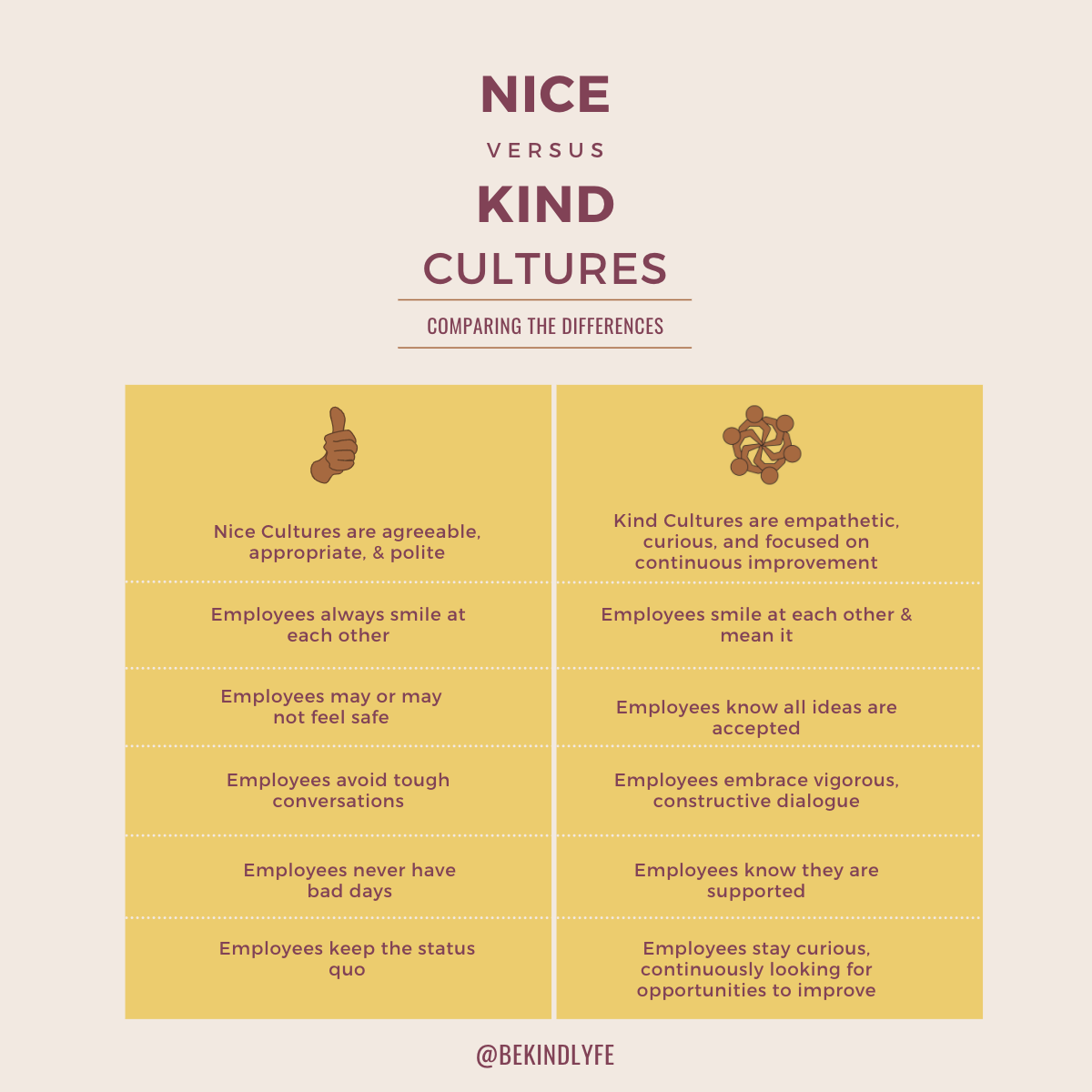Why Nice and Kind Are Not the Same Thing in Work Culture
Kind and nice are often interchangeable words when we think about how we speak to and treat one another in daily life. And while I do think they can be interchangeable in that context, when we talk about work culture it is different.
Anytime I want an understanding of a concept, I start with it's definition. When I look up the word nice, Merriam-Webster definitions include words such as polite, kind, pleasing, agreeable, appropriate and fitting. All really great characteristics when you are gathering with family for a picnic, engaging with strangers on a plane and even when you are speaking with colleagues. But when we speak of a kind culture, nice is only part of it.
In a kind work culture we are nice, yes, but we want and need so much more. We need empathy, respect and honesty. We need to be ready to improve, make changes, and have difficult conversations. If we want to establish an environment that is creative and innovative at solving problems and continuous improvement, than we need to be way more than just nice. And it all begins with empathy.
Empathy is the foundation for all kind cultures. Without empathy we have no psychological safety, we have poor communication and all creativity and innovation dry up. Empathy, most simply put, is the ability to understand someone else's feelings, perspective, and decision-making. When we start with empathy, we are curious; we are trying to understand where someone is coming from instead of judging it. As Stephen Covey says, "When you show deep empathy toward others, their defensive energy goes down, and positive energy replaces it. That's when you can get more creative in solving problems." This is also where you build psychological safety.
Psychological safety is a key component in a kind culture. Employees need to know that will not be humiliated, shunned, ostracized or punished for opinions, mistakes or ideas they have. A culture, without psychological safety for all, will never thrive and in many cases won't even survive.
When your company's culture has psychological safety, communications start to open up, silos start to fall down. As silos start to fall team empowerment shows up and then you are getting innovative problem-solving and now your company is excelling.
Want more tips on how to keep employees inspired, engaged and innovative? Let's connect.

